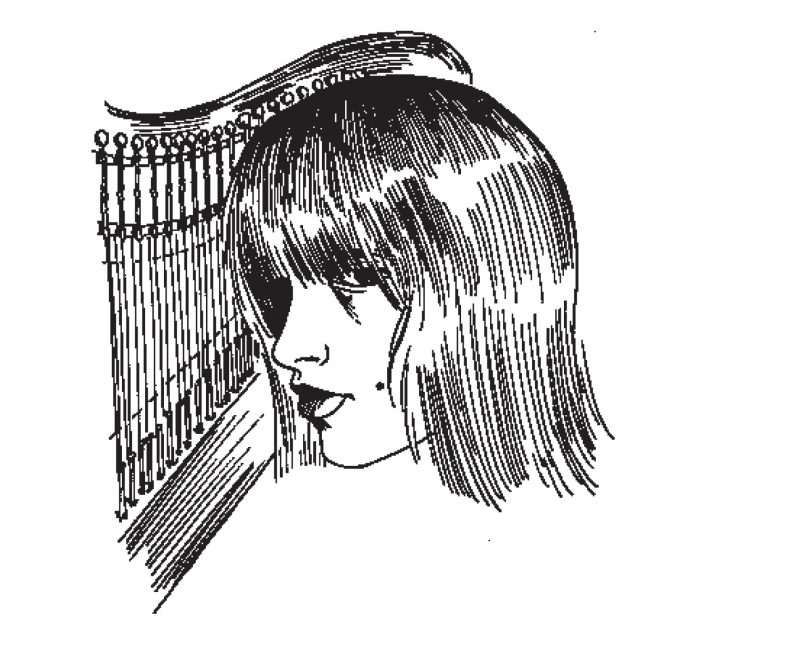Trying to describe Joanna Newsom to people is difficult. It’s a bit like the parable of the blind men trying to describe an elephant. You could start by saying she’s a harpist and singer. But when most people hear the word “harp” they immediately imagine classical music, or tinkling music-box stuff, and their eyebrows go up. You say: No, no, it’s sort of folk music, but sort of not, has a touch of Appalachia but really it’s a style all its own. That just makes people more skeptical. You tell people she’s got an incredibly unique voice, singular in the way Björk’s voice or Cat Power’s voice is, and people get even more confused. You try to describe the lyrics, the intricate constructions and marvelously obscure words. Catenaries and dirigibles! you cry. By now your listeners have given up and are backing away, nodding politely. Finally, in desperation, you shut up. You make them listen to Newsom’s music, which is what you should have done in the first place. Because now the confusion drops away. Because whatever it is, however you describe it, it’s really, really, really good—haunting, sad, lovely, a bit scary, and wonderfully peculiar. The following interview was conducted, in person, in San Francisco. Newsom’s new album The Milk-Eyed Mender has just been released by Drag City.
—Judy Budnitz
CLAM, CRAB, COCKLE, COWRIE
THE BELIEVER: You use words that I’ve never heard in songs before. It’s so cool to hear words like “poetaster” and “ululate” in a song.
JOANNA NEWSOM: I really like playing with interior rhymes, not just rhyming the ends of lines. And playing with different syllabic emphases. That’s something I love about writing words for music—there’s this immense freedom to play with language in a way that I felt hindered about when I was writing prose. Nowadays, there’s not a great deal of respect given to rhyming, in prose or poetry. But I’m really interested in rhyme patterns, the sonnet form. With music, hardly anyone notices that you’re doing that stuff. So it doesn’t get analyzed, it doesn’t get picked apart, it doesn’t get labeled “neo-classicism” or something. Because no one’s paying attention.
BLVR: Your lyrics are very thought-out. You write like a poet.
JN: Well, I love to write. I haven’t finished school yet, but when I was studying in school I was doing creative writing. But I would say that if I’m influenced in my writing, it’s less by poetry and more by prose. It sounds silly, but Nabokov has been a huge influence. The way he strings words together. There’s something about English as a second language… and with him you have a person who is hypersensitive to language, hypersensitive...
You have reached your article limit
Sign up for a digital subscription and continue reading all new issues, plus our entire archives, for just $1.50/month.
Already a subscriber? Sign in





